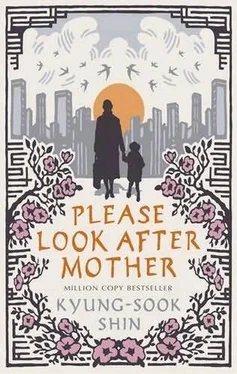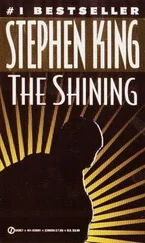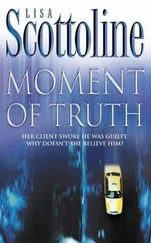One winter night, you came home and your children had suddenly grown up. Everyone was sleeping huddled together because it was so cold outside. Your wife took the rice bowl she had left in the warmest part of the room and put a small table draped with a cloth in front of you. There was a snowstorm that night. Your wife toasted seaweed on the brazier. The nutty smell of perilla oil woke your children one by one, and they crowded around you. You wrapped some rice with seaweed and put it in each child’s mouth. You put some in your eldest son’s and your second son’s and your elder daughter’s mouths. Even before you got to your younger daughter or the baby, Hyong-chol was already waiting for more. It took you longer to prepare the rice than it took your children to eat it. You grew frightened of your children’s appetites. You wondered what to do with all of them. That was when you decided that you needed to forget about the outside world, that you couldn’t leave this house again.

“I’m home!”
You open the bedroom door. The room is empty. A few towels are neatly folded in one corner of the room, where your wife left them before you headed to Seoul together. The water you took your pills with on the morning of your departure has evaporated from the glass you set on the floor. The clock on the wall shows that it is 3 p.m., and the shadows of bamboos lean into the room, which faces the back yard.
“I said I’m home,” you say to yourself in the empty room, your shoulders slouched. What were you thinking? When you shook off your son, who vehemently disagreed with your coming home by yourself, and you took the morning train, a small corner of your heart nurtured the hope that when you walked in and called, “Are you here? I’m home!” your wife would greet you as in old times-“You’re home!”-perhaps while she cleaned the room or trimmed vegetables in the shed or washed rice in the kitchen. You thought that might happen somehow. But the house is vacant. It feels deserted, having been left empty for so long.
You get up and open all the doors in the house. “Are you in here?” you ask at each door. You open the doors to your bedroom and the guest room and the kitchen and the boiler room. It’s the first time you’ve desperately searched for your wife. Did she look for you like this every time you left home? You blink your dry eyes and open the kitchen window, to look at the shed. “Are you in there?” But there’s only the bare platform.
Sometimes you stood in this spot and watched your wife busily doing something in the shed, and she would look over at you even if you didn’t call her. And she’d ask, “What? Do you need something?” If you said, “Where are my socks? I want to go into town,” she would quickly peel off her rubber gloves and come inside to find your clothes for you.
You stare at the empty shed and murmur, “Hey… I’m hungry. I want to eat something.”
When you said you wanted to eat something, your wife would stop what she was doing without hesitation and come to you and say, “I picked some fatsia in the hills; do you want some fatsia pancakes? Do you want to eat those?”-even if she had been slicing off the tops of peppers or folding sesame leaves or salting cabbage. Why didn’t you know then that you had a peaceful and lucky life? How could you have taken what your wife did for you for granted, without ever once making her seaweed soup? One day your wife came back from town and said, “You know that butcher you like in the market? I was passing by today, and his wife kept calling me, so I went in, and she invited me to share some seaweed soup, so I asked, ‘What’s the occasion?’ She said it was her birthday, and her husband had made her the soup that morning.” You just listened, and she said, “It wasn’t particularly tasty. But for the first time, I was envious of the butcher’s wife.”
Where are you …? If your wife would just come back, you would make not only seaweed soup but also pancakes for her. Are you punishing me …? Water pools in your eyes.
You left this house whenever you wanted to, and came back at your whim, and you never once thought that your wife would be the one to leave.

Only after your wife went missing did you recall the first time you saw her. It was after the families had decided that the two of you would marry, before you had met each other. The war was over, thanks to the cease-fire agreement between the UN commander and the communist commander at Panmunjom, but the world was more unsettled than it had been during the war. During this time, hungry North Korean soldiers came out of hiding in the hills at night and ransacked villages. When night fell, people with daughters of marriageable age were busy hiding them. A rumor that the soldiers from the hills snatched young women spread throughout the villages. Some would dig holes near the railroad tracks and hide their daughters there. Others spent the night huddled in one house together. Some quickly married off their daughters. Your wife lived in Chinmoe from her birth until she married you. You were twenty years old when your sister told you that you would be marrying a young woman from Chinmoe within a month. She said it was a young lady whose horoscope matched yours perfectly. Chinmoe. It was a mountain village about ten ri away from your village. In those days, it was common for people to marry without ever having glimpsed each other’s faces. The ceremony was to be held in October in the yard of the young lady’s house, soon after rice stalks were gathered from the paddies. Once the ceremony date was set, people teased you if you smiled, saying that you must be happy to be getting married. You neither liked nor disliked the idea. Because your sister did all of the housework in your house, everyone said you had to hurry up and get married. It made sense, but it occurred to you that you couldn’t live with a woman you’d never even laid eyes on.
You never wanted to live your entire life farming in this village. At a time when there were so few people available to work that even children were called to the fields, you wandered around town with friends. You made plans to run away and set up a brewery in a city with two friends. You were preoccupied not with marriage but with how to raise the money to open a brewery, so what was it that made you head over to Chinmoe?
Your bride’s house was a cottage embraced by a thicket of bamboo trees in the back, with ripe red persimmons hanging low on a tree in one corner. Your bride, wearing a cotton chogori, was sitting on the porch of the cottage, embroidering a phoenix on an embroidery frame. Bright light bounced off the roof and the yard, but the young woman’s expression was dark. She looked up at the clear autumn sky once in a while, craning her neck. She watched some geese flying in a row until they disappeared. The young woman got up and left the porch. Unseen, you followed her to the cotton fields. Your future mother-in-law was squatting in the fields, picking cotton. The young woman called from afar, “Mom!” Your future mother-in-law answered, “What?” without looking up, continuing to pick cotton. White cotton danced in the brisk air. You were about to turn back, but something made you inch closer to the women and hide, crouching amid the white tufts. The young woman called “Mom!” again. Your future mother-in-law replied, “What?” without looking.
“Do I have to get married?”
You held your breath.
“What?”
“Can’t I just live with you?”
Cotton blossoms waved in the breeze.
“No.”
“Why not?” The young woman had sorrow in her voice.
Читать дальше













